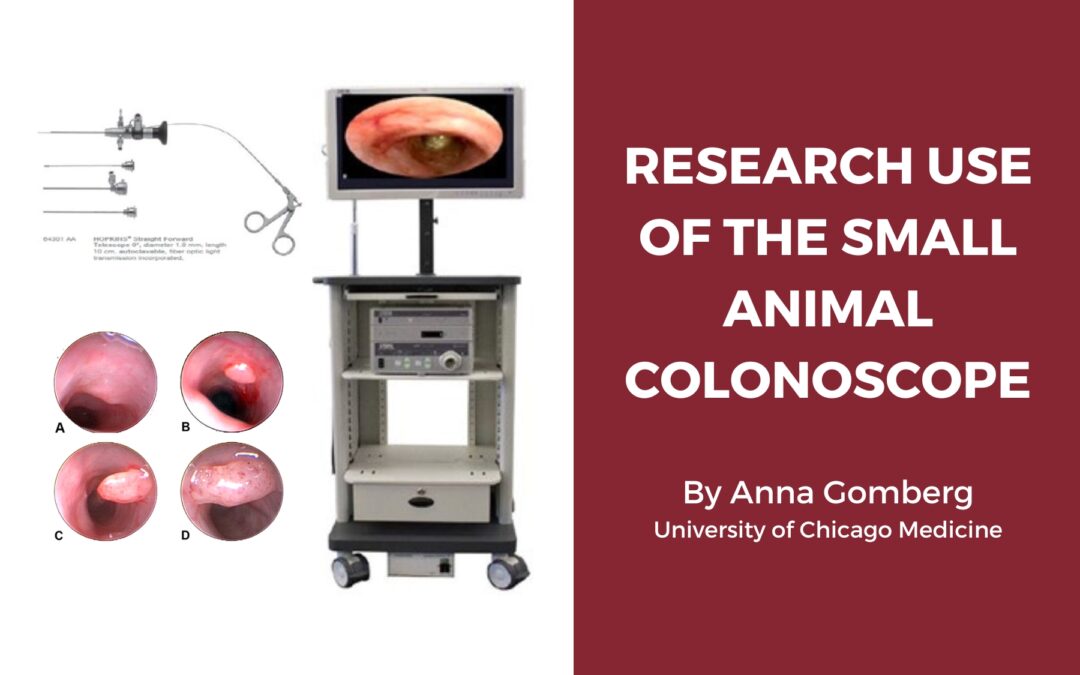At the 2022 GI Research Foundation Annual Ball, generous guests funded the purchase of a Storz Coloview Small Animal Colonoscopy System, which has proved integral to supporting the ongoing research of several University of Chicago Medicine laboratories pursuing the promise of regenerative medicine. On May 25, 2023, the total award of $106,446 was received by the University for the equipment.
Colonoscopy with biopsies are the gold standards for diagnosis and assessment of bowel injury and disease progression. In many animal models, the animals are sacrificed to examine their disease state in different experimental conditions, but for chronic conditions like Crohn’s disease and ulcerative colitis, and for some experimental designs, this is insufficient. Murine (mouse) colonoscopy is a valuable tool for disease research1.
The new system, the Coloview colonoscopy system, has allowed for both high-resolution imagining and collection of samples from murine subjects. This technology has been used by investigators including Eugene Chang, MD, and his lab to both monitor inflammation and healing of colitis, sample mouse mucosa, and to implant of intestinal stem cells into wounded areas and observe results over time.
The Chang lab has been studying a gene called HSP25 for many years, and has evidence that suggests that HSP25 is important in intestinal wound healing. Explains Candace Cham, PhD, Manager of the Chang lab, “to test this hypothesis, we will use the mouse colonoscope to help guide us in making a small wound in the intestinal wall of mice. Some of these mice will not make HSP25 at all, and others will make high levels of HSP25. Once the wound is made, we will use the colonoscope to monitor the repair process (and take images of the wound site) in these different lines of mice. We expect that wound healing would be delayed in mice that do not make HSP25 compared to mice that make high levels of mice.”
More research is forthcoming. Cambrian Liu, PhD, and his lab will soon use this technology to precisely biopsy the mouse colon for tissue samples and monitor the progression of mucosal healing and regeneration over time. Translational researchers Marc Bissonnete, MD, Joel Pekow, MD, and Yan-Chun Li, PhD, are using the Coloview colonoscopy system to investigate tumor incidence and progression in colon cancer mouse models.
From Anna Gomberg, University of Chicago Medicine
1. Huang EH, Carter JJ, Whelan RL, Liu YH, Rosenberg JO, Rotterdam H, Schmidt AM, Stern DM, Forde KA. Colonoscopy in mice. Surg Endosc. 2002 Jan;16(1):22-4. doi: 10.1007/s004640080168. Epub 2001 Oct 13. PMID: 11961598.

